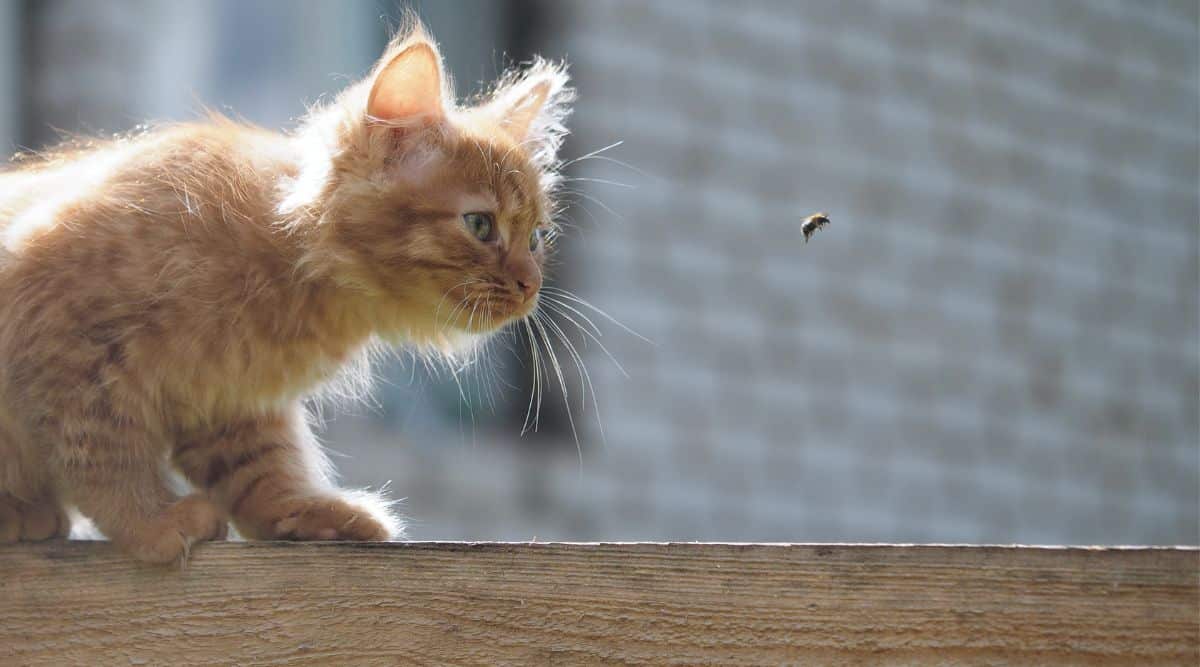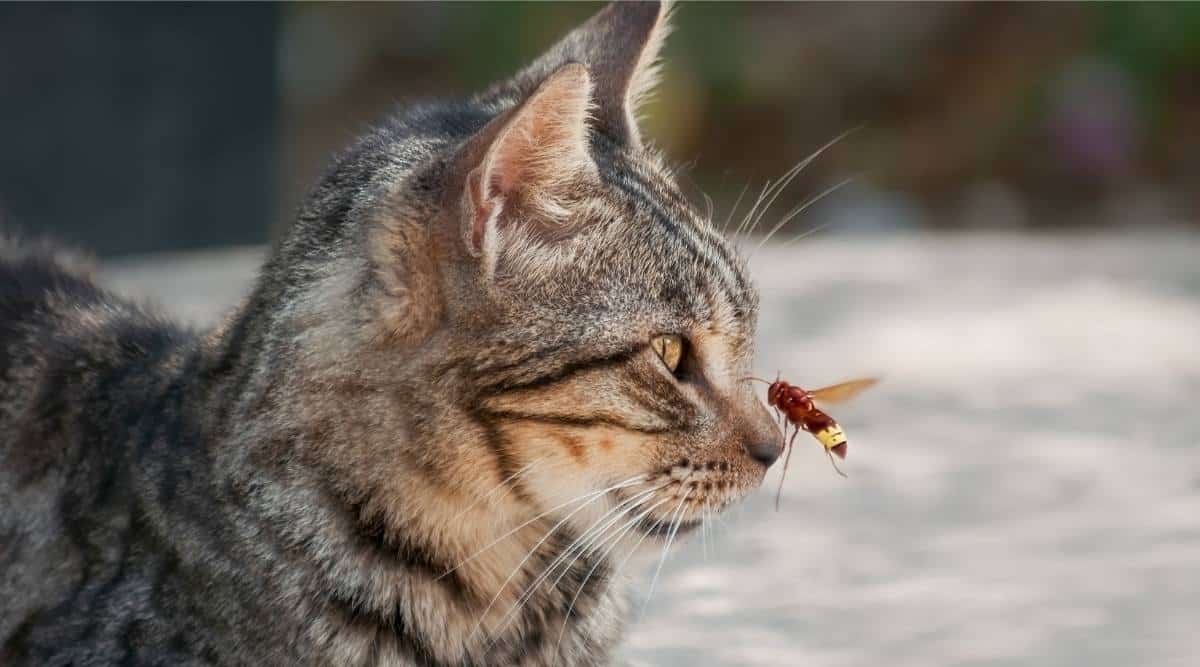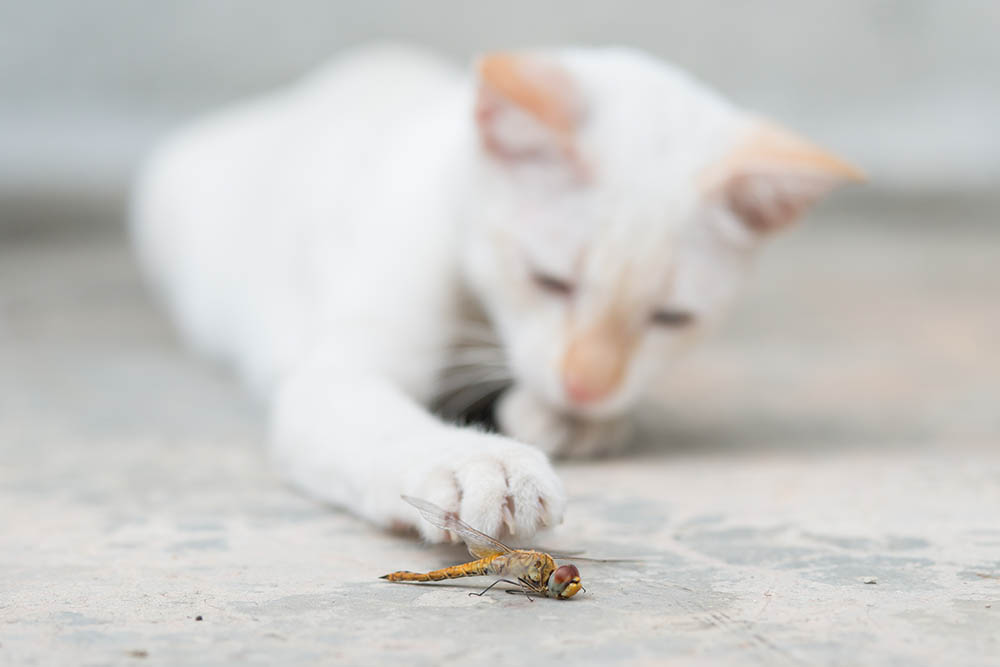Introduction
The inquisitiveness surrounding what our feline friends can or cannot eat is a common concern among pet owners. As we delve into the intricate world of feline dietary habits, the question often arises: “Can cats eat wasps?” This article aims to explore not only the instinctual behaviors of cats but also the broader context of pet owners’ concerns regarding their beloved companions’ nutritional choices.

Can Cats Eat Wasps?Understanding Feline Instincts
Cats, by nature, are hunters. Their instinct to chase and catch insects is deeply ingrained, a behavior inherited from their wild ancestors. However, the question remains: can cats eat wasps? To unravel this mystery, we need to examine the potential risks associated with such dietary choices.
Dangers of Cats Eating Wasps
The dangers of cats consuming wasps extend beyond a mere insect-based snack. Allergic reactions can vary in severity, from mild discomfort to life-threatening situations. Furthermore, wasp venom introduces another layer of complexity, potentially causing toxicity in cats. Additionally, the physical injuries resulting from wasp stings can pose serious health risks to our feline companions.

Signs of Ingestion
Understanding the signs of wasp ingestion is crucial for prompt intervention. Behavioral changes, such as increased restlessness or agitation, may signal discomfort. On a physical level, symptoms like swelling or lethargy could indicate that your cat has ingested a wasp. Recognizing these signs enables proactive measures to ensure your cat’s well-being.
Preventive Measures
To safeguard your cat from the potential dangers of wasp consumption, creating a wasp-free environment is paramount. Beyond this, training your cat to steer clear of these insects is a proactive approach. Additionally, offering a variety of safe and stimulating alternatives for entertainment can redirect their natural hunting instincts.
What to Do if Your Cat Eats a Wasp
In the unfortunate event that your cat consumes a wasp, knowing the immediate actions to take is crucial. From monitoring for adverse reactions to seeking veterinary assistance, a swift response can make a significant difference in mitigating potential health risks.
Common Misconceptions
Dispelling myths surrounding cats and wasps is vital for accurate information. By examining common misconceptions and supporting the discussion with scientific evidence, we can provide a comprehensive understanding of the dynamics between cats and wasps.

Safe Foods
While exploring what cats should avoid, it’s equally important to expand the list of cat-friendly and nutritionally beneficial foods. A well-rounded diet contributes to the overall health and longevity of our feline companions, emphasizing the importance of responsible pet ownership.
Behavior
Delving into the evolutionary reasons behind cats finding insects, including wasps, intriguing sheds light on their complex behavior. This exploration helps us analyze the delicate balance between their natural instincts and potential health risks associated with certain dietary choices.
Cat Entertainment
Expanding the discussion on interactive toys and recommending specific types can enhance the mental and physical stimulation your cat receives. Furthermore, enriching outdoor activity suggestions cater to different cat personalities and preferences, ensuring a well-rounded and engaging environment.
Conclusion
In conclusion, while cats’ instinct to chase and catch insects is natural, responsible pet ownership requires us to mitigate potential risks. Understanding the dangers, recognizing signs of ingestion, and implementing preventive measures are essential steps to ensure the safety and well-being of our feline friends.
FAQS
Yes, it is generally okay if your cat ate an insect. Cats often exhibit natural hunting behaviors and may catch and eat insects without adverse effects. Insects like flies, moths, or spiders are not toxic to cats in most cases. However, it’s essential to be cautious of potential exposure to pesticides or harmful substances if you use them in your home.
Monitor your cat for any signs of distress, allergic reactions, or changes in behavior. If your cat continues to behave normally and shows no signs of illness, it’s likely not a cause for immediate concern.
2 thoughts on “Can Cats Eat Wasps? 2023”